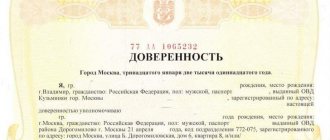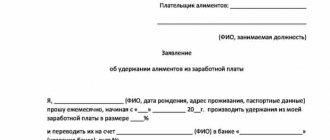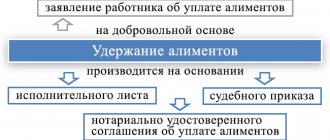The legislation of the Russian Federation defines the responsibility of parents to raise and support their children as fundamental. The payment of alimony does not stop even in the event of disability or old age of the parents.
The situation in which the father or mother of a child receives a pension is stipulated by the eightieth article of the RF IC. It states that alimony is charged as a share of the citizen’s income. The list of sources of income is specified in Government Resolution No. 841, which stipulates the conditions for four types of pensions:
- by length of service;
- on disability;
- for loss of a breadwinner;
- social pension.
Let's look at each of these options in more detail.
Alimony from pension
Payments for various categories of pensions
A long-service pension is paid to people who have served their required term in government agencies related to security and maintaining order - the army, police, Ministry of Emergency Situations. Payments are made 10 to 20 years earlier than retirement due to adjustments for the hazards and social benefits of the job. In this case, alimony is collected in full, without any exceptions.
Social assistance for the disabled is also income from which withdrawals are made. The group does not matter: a disabled person in group 1 pays exactly the same percentage of income as a citizen in group 3. There is also a difference - in case of disability, a person has the right to file a petition in court to reduce the amount of payments. Most often, the judge reduces the amount of payments to the minimum, since for the majority of disabled people of the first and second groups, almost all of their income is spent on rehabilitation, the purchase of technical equipment and medicines.
Social assistance for disabled people
The survivor's pension is the only category for which alimony is not accrued. The logic of the decision here is approximately the same as in the case of disabled people - you cannot put even more pressure on a person who has lost a loved one and the main source of income. At the same time, if a citizen who has lost a breadwinner finds a job or other sources of income, payments will be collected from them in full.
A social pension or old-age pension does not provide any benefits to the child support recipient. In this, the most common of the four cases, alimony is collected in full, without restrictions.
Can alimony be collected from a pension - yes or no
The Family Code does not contain any list of payments or sources of income from which a citizen can withhold maintenance from family members. There is only one regulatory document that addresses this topic. By its resolution, the Government of the Russian Federation provided a list of the types of income from which alimony is collected.
The government decree clarifies the list of payments through which child support obligations are satisfied only in relation to minor children. True, the methodological recommendations of the Federal Bailiff Service suggest extending this legal act to the collection of any other types of alimony. The issue remains controversial and ambiguous.
At the same time, the legislation on enforcement proceedings establishes a list of those incomes from which, on the contrary, no penalties are allowed. And one of the types of such payments is provision of compulsory social insurance. Therefore, the question often arises whether such deductions from pensions are allowed.
Do they pay from old age pension?
This type of pension provision is directly cited as an exception to those insurance payments from which collections are prohibited. This means that alimony can be withheld from the old-age pension based on the order of the bailiff.
From disability pension
Despite the fact that this type of support is social in nature and is aimed at financial support for a disabled citizen, alimony is also withheld from the disability pension. This is also expressly stated in the text of the law on enforcement proceedings.
From military pensions
Pension benefits for former military personnel are nowhere explicitly mentioned as a type of income from which maintenance is withheld for a needy family member. However, the list approved by the Government of the Russian Federation mentions all types of pensions, which allows us to conclude that military pensions are also included in this list. This is logical; having military serviceman status cannot serve as an exemption from fulfilling the obligation to support your needy family members.
Volume of payments
The amount of alimony can vary greatly depending on whether it is paid voluntarily or through a court order. In the first case, payments are made with the following minimum limit:
- at least 25% of total income is spent on one child;
- for two - 33 percent;
- for three or more - half the income.
The amount of child support can vary greatly depending on whether it is paid voluntarily or through a court order.
According to the Family Code, it is prohibited to withdraw funds in the amount of more than half of the income. Exceptions include debt repayment for persistent defaulters with high incomes: for them, the amount of payments can be temporarily increased to 70%. Also, with voluntary consent, both parties are guided by their financial situation and the minimum wage established in the country.
Important! If the amount of alimony payments is less than half the subsistence level, it can be changed by a direct decision of the court.
When collecting after a trial, alimony is also withheld as a percentage of income or a fixed amount. The second method is used in cases of difficult situation of the alimony provider (for example, disability). In any case, the court tries to respect the interests of both parties so that following the letter of the law does not deprive them of their livelihood.
“Family Code of the Russian Federation” dated December 29, 1995 N 223-FZ Article 81. Amount of alimony collected from minor children in court
Amount of alimony charged
The amount of alimony collected from the pension is established by family law and depends on the number of children who need to be financially supported.
In addition, the law gives parents the right to independently agree on how much money will be paid to the child monthly. In this case, payments can be assigned in the form of:
- a certain share of income;
- in a fixed amount (when the parent does not have a regular fixed income);
- mixed (one part of the alimony is paid as a percentage of the pension, the other - in a fixed amount).
If the father or mother who must pay child support does not work, the amount of payments will depend on the cost of living in the region.
For one child
According to Part 1 of Art. 81 of the RF IC , if maintenance obligations have arisen in relation to one child, 25% of the pension , regardless of its size.
For two children
If there are two minor children, the pensioner will part with 33% of his income monthly.
For three children or more
If there are three minors or more children, the parent will be charged 50% of his income .
Under certain circumstances this value can be increased to 70%:
-if there is arrears of alimony;
-a parent has child support obligations for three or more children, one of whom is disabled.
How is collection carried out?
The first step for forced collection will be the execution of a writ of execution. With voluntary consent, such a document will become an agreement of the parties; after the court hearing, you need to obtain a writ of execution from the court office.
The case is heard in the magistrate's court at the applicant's place of residence. If a claim for an increase or recovery of payments is brought by a parent and a child, the case will be heard in the court closest to them, and the alimony provider must regularly attend meetings. Further, when a decision is made in favor of a minor, there are two options for the development of events.
Appeal to bailiffs
Application for calculation of alimony debt
The simplest and in most cases effective method. An appeal to the bailiffs removes all questions from the other side and transfers the solution of the alimony issue to the state. The bailiffs, having a writ of execution in their hands, will carry out forced collection from the pension and other official sources of income of the alimony worker without any special difficulties.
Important! Bailiffs, checking the money in the accounts of the defaulter, have the right to seize and write them off. Even if this particular payment is not considered taxable alimony income. To get the money back, you must file a complaint with a certificate from the Pension Fund, which will indicate the targeted transfer of funds.
In a situation where a pensioner works unofficially, hiding income, bailiffs have the right to take additional administrative measures, up to and including re-submitting the case to court. The actions of bailiffs are regulated by Article 101 of Law No. 229-FZ.
Direct appeal to the Pension Fund
If a parent or guardian providing for a child does not want to resolve the issue through the bailiffs for personal reasons, he can apply directly to the Pension Fund or any other fund that pays the child support. This applies to all organizations operating within the legal framework of the legislation of the Russian Federation.
If a parent or guardian providing for a child does not want to resolve the issue through the bailiffs for personal reasons, he can contact the Pension Fund directly
After the application, supported by a writ of execution or agreement, the fund is obliged to recalculate the amount of payments and transfer them to the applicant automatically, to the specified account. In this case, it is impossible to evade payments - the alimony provider simply does not participate in the procedure for transferring money, and it will not be possible to hide the amount of the pension.
Calculation of the amount of alimony from a pension
In accordance with the legislation, which is also in force in 2021, only the court and bailiffs have the right to determine the amount of alimony and consider the income of a pensioner.
By its decision, the court determines not only the amount of payments, but also the health status of the payer and his financial situation.
Deductions are collected from all types and types of income of a pensioner:
- social benefits;
- social help;
- the pension itself;
- wages if the pensioner continues to work;
- compensation;
- vacation pay;
- other material deductions.
The law determines the amount and procedure for collecting alimony from a pension, taking into account the interests of both parties.
It is important to understand that it is very rarely possible to recover 70% or more of his income from a pensioner. There are very few such cases. Usually a maximum of 50% is retained and this is under certain conditions.
When calculating alimony payments from a pension, the financial situation of the pensioner and his financial capabilities are always taken into account.
If the payer can prove in court that he does not have enough funds for a normal existence, then the court may reduce the amount of alimony, and in certain cases, cancel it altogether.
In addition, it should be understood that child support is not a means of providing a luxurious life for a child or his parent who cares for him.
The purpose of alimony payments is to allow the child to live in primary conditions, as if he were living in a full-fledged family.
Reducing alimony
There are several situations on the basis of which the court can make a decision to reduce the amount of alimony payments to disabled people:
- High costs for medicines and medical procedures.
- Change in financial or marital status.
- The child has other sources of income that fully satisfy his needs.
- The parent with whom the child lives has acquired property or real estate that brings constant income.
- The emergence of new alimony obligations among disabled people.
- High payer income. If the percentage of income is a very large amount, which significantly exceeds the child's needs.
Grounds for reducing alimony from pension
The amount of payments for children is reduced when payers file claims on the following grounds:
- difficult financial situation;
- disability and need for regular purchase of medications;
- the appearance of other dependents for whom alimony has to be paid.
A reduction in the amount of alimony is allowed only by a court decision on a counterclaim or presentation of an objection by the defendant. It is also possible to reduce payments after the payment has been assigned by filing a claim.
Maximum amount of alimony
The maximum amount of voluntarily paid alimony is not limited in any way. The parent can pay any amount for the child that he wishes.
There is no upper limit for the amount of alimony collected in a specific amount. If the parent who has children proves that exactly this amount of money is required for the normal life and development of the child, it will be awarded, but within 70% of the income.
Correction factors
As mentioned earlier, the amount of alimony paid in a fixed amount depends on the cost of living established in a particular region. As it increases, the amount of payments is indexed and grows proportionally.
Collection procedure
To collect alimony from a disabled person, you must submit the following list of documents:
- Application for collection of alimony.
- A copy of the marriage or divorce certificate.
- A copy of the child's birth document.
- An extract from the house register, which confirms the fact that the plaintiff lives with the child.
- Document from the defendant’s place of work, if he is employed.
If the payer makes timely alimony payments, then no special difficulties arise when alimony is collected from the pension.
The parent with whom the child lives files a claim and the court determines the amount of funds that can be deducted from the pensioner.
The bailiffs report the court decision to the pension fund department. The court also makes notes and starting next month, the amount established by the court will be transferred to the account or card of the alimony recipient.
To begin the process of withholding alimony from a pension, you must have a court decision and a writ of execution. They can be issued and certified by Arbitration Courts or ordinary courts. You will also need a court order on the possibility of foreclosure.
All work regarding the collection of alimony payments is carried out by bailiffs .
It is their responsibility to ensure that no debt arises. If necessary, they negotiate with the defaulter and submit documents to the court to foreclose on the property.
The applicant is only required to submit a court decision and personal documents.
Reasons for reducing payments
The legislation considers a number of circumstances in which the amount of monthly payments can be reduced and the debt reduced. Such circumstances are:
- disability of the first and second groups, in which the citizen’s ability to work is absent or seriously limited;
- the difficult financial situation of the alimony provider;
- loss of a breadwinner (for example, a guardian for a person with limited legal capacity).
Statement of claim to reduce the amount of alimony
In these cases, the court considers all the circumstances of the case and then makes a decision in accordance with the circumstances. The main thing in the trial will be the fact that the alimony recipient is recognized as a person in need, which will allow him to reduce or completely remove his obligations (for exceptional cases).
Is it possible to reduce the size
With regard to the maintenance of minor children, the law expressly provides that the amounts established as a general rule can be reduced, but only in the presence of exceptional circumstances.
Among them, the Supreme Court of the Russian Federation lists the following:
- the presence of other persons as dependents of the obligated citizen, in particular the need for him to support his other minor children;
- a citizen’s small income, in which, after paying alimony, he has no funds left for his own life (in this case, evidence must be presented to the court that in this way the person is not trying to hide official income);
- the advanced age of the payer or the deterioration of his health;
- in other cases of deterioration in the financial condition of the payer.
The procedure for exercising the right to reduce alimony obligations is as follows:
- The occurrence of circumstances giving, in the opinion of the obligated person, the right to a reduction in payments.
- Collection and preparation of documents to support these circumstances.
- Drawing up an application to the court with a request to reduce the amount of alimony and sending it to the court in accordance with the jurisdiction (usually the same court that made the decision on alimony).
- Issuance of the appropriate court decision and its entry into legal force.
It is worth noting that the possibility of changing the already established amount of maintenance is also established by the general norm, which means it applies not only to alimony for children, but also to any other family members. The law connects this possibility with a change in either the material well-being of the parties or their marital status.
Moreover, this rule applies to both sides. For example, if a disabled ex-wife remarried, the court may completely exempt the citizen from paying alimony. Likewise, if a person has a new dependent wife, the amount of alimony to the previous spouse may be reduced.
Documents required to challenge alimony
Often, after retirement, a person is unable to maintain the amount specified in the alimony agreement due to a sharp decrease in income. More often this happens to disabled people who received the group as a result of an accident or work injury.
Documents required to challenge alimony
In this case, you can reduce the amount of payments either after re-agreeing with the child’s second parent or by filing a claim in court. Other authorities do not have the right to change the amount of payments.
To consider the case, the court will need to provide:
- Claim application.
- Identification.
- A document confirming the birth of a child.
- Certificates confirming force majeure circumstances of the plaintiff.
- Statements from the bank account, place of work and pension fund confirming the pensioner’s earnings.
- Copies of receipts for medicines and technical equipment necessary for the health condition of the alimony worker.
| Statement of claim | |
| On divorce, collection of alimony and division of property | |
| On collecting child support | |
| On the collection of alimony without marriage | |
| On the collection of alimony in marriage | |
| On the collection of alimony in a fixed amount of money | |
| On the collection of alimony for parents | |
| On the collection of penalties for alimony | |
| About alimony debt | |
| About the division of alimony | |
| About child support for an adult child | |
| About changing the amount of alimony | |
| On exemption from payment of arrears of alimony | |
| On the cancellation of alimony | |
| On increasing alimony | |
| On reducing the amount of alimony |
Important! The application should indicate that the reduction in the amount of alimony is carried out only for the period of a precarious financial situation, incapacity or disability of the pensioner. This will increase the chances of making a positive decision. Also, in most cases, it is not worth asking for a complete withdrawal of payments - for this, the plaintiff’s situation must be truly dire.
Indirect circumstances affecting the reduction of alimony payments
The court may also consider circumstantial circumstances influencing the case. So, if a woman with a child earns much more than her husband who received a disability, then the chances of a reduction in the amount of alimony increase significantly.
How to apply for alimony for a pensioner
Depending on how his retired father feels about supporting his child, there are two options for receiving alimony from him.
With voluntary consent
When there is a voluntary agreement to support the child on the part of his father, and the amount of such assistance is regulated between the parents (legal representatives), an agreement on the payment of alimony can be drawn up.
This document is drawn up in writing, signed by the parties and certified by a notary. If the father of the child fails to fulfill his obligation, the mother (guardian) has the right to forcibly collect maintenance. To do this, the agreement or its notarized copy is presented to the bailiff service for execution. It is a type of executive document and has the force of a court decision.
Important! Failure to comply with the conditions of mandatory notarization deprives the child’s mother of the right to receive alimony by presenting an agreement for forced collection, bypassing court proceedings.
If the retired husband refuses to help the child financially
When a pensioner categorically refuses to help his child financially, he needs to collect documents and go to court. In order for the application to be accepted and considered, the mother (guardian or trustee) must attach to it:
- copy of passport;
- a copy of the document on guardianship or guardianship (if it is not the child’s natural mother who is applying for alimony);
- child's birth certificate;
- certificate of registration or divorce;
- certificate of dependency and cohabitation with the child.
The application itself must indicate that the debtor receives income in the form of a pension. It is not necessary to attach a certificate of its size. Her court will ask the father of the child or independently.
Important! If an application for a court order is submitted in person to the court office, the claimant must keep one copy of it with an acceptance stamp.
Sometimes in practice there are cases when a retired father, in order to extend the time of non-payment of child support, files objections to the court order to collect them. In this case, the claimant must draw up a statement of claim for the recovery of alimony and submit it to the same court. The same documents are attached to it as to the application for the issuance of a court order. As a result, the court will collect the maintenance from the date of the initial application for it (Part 11 of the Resolution of the Plenum of the Supreme Court of the Russian Federation No. 56 of December 26, 2017).








